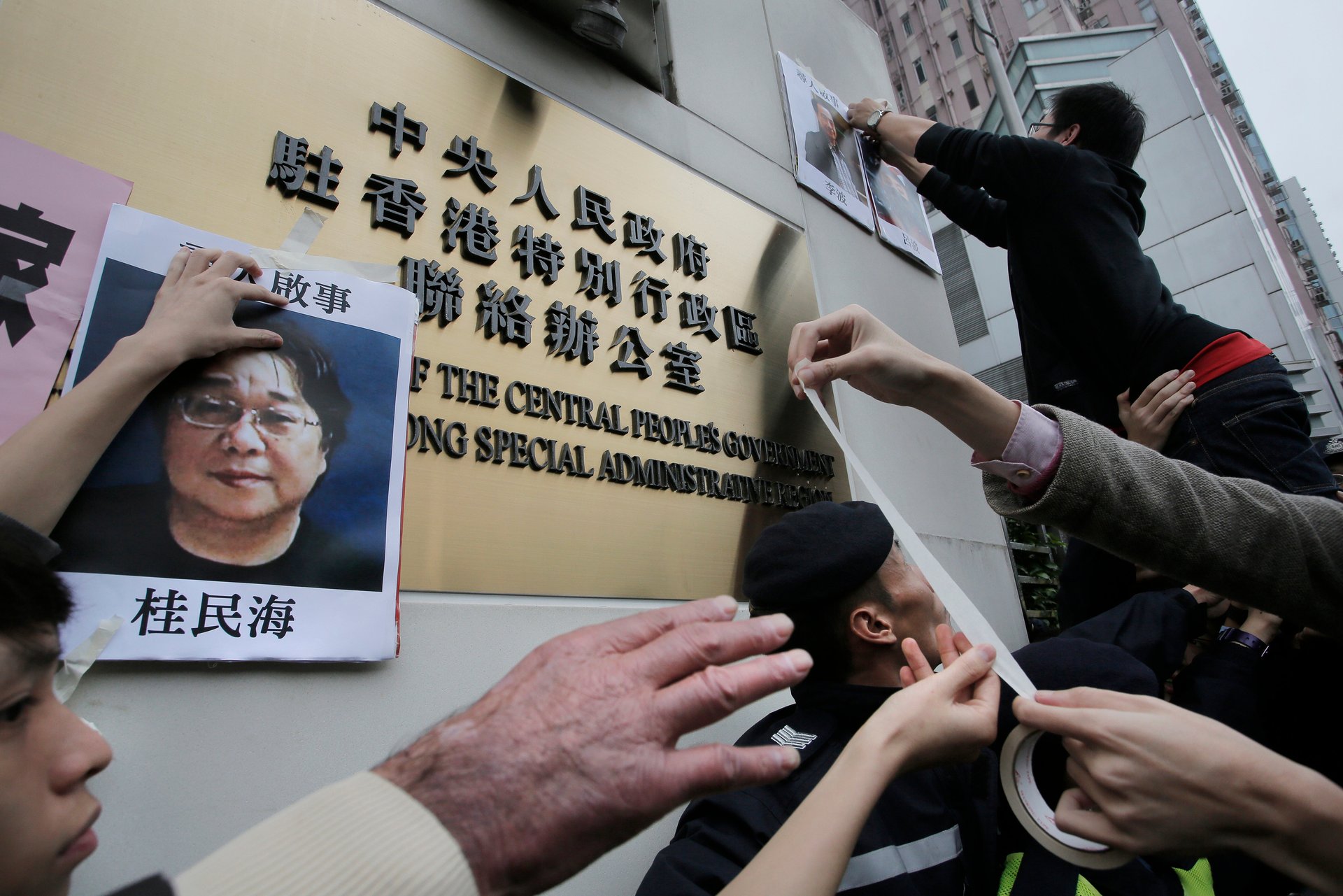Four years after his disappearance, China sentenced a Hong Kong bookseller to 10 years in prison
Gui Minhai, one of the five Hong Kong booksellers who mysteriously disappeared from the city in 2015, only to later re-appear in detention in China, was sentenced yesterday by a Chinese court to 10 years in prison.


Gui Minhai, one of the five Hong Kong booksellers who mysteriously disappeared from the city in 2015, only to later re-appear in detention in China, was sentenced yesterday by a Chinese court to 10 years in prison.
In a statement (link in Chinese), the court in Ningbo convicted Gui, 55, of “illegally providing intelligence overseas,” and stripped him of “political rights” for five years in addition to the lengthy jail sentence. The court also said that Gui has pleaded guilty and would not be appealing.
Speaking on Swedish radio, foreign minister Ann Linde called on China to release Gui, and demanded immediate access to him. “We have always been clear that we demand that Gui Minhai be released so that he is able to reunite with his daughter, his family, and that demand remains,” she said. China’s foreign ministry said Swedish diplomats would have access to Gui after the coronavirus epidemic is resolved.
Gui, a Swedish citizen, was the owner of Mighty Current, a Hong Kong publishing house that sold books that had been banned in China. Business was brisk and relatively risk free until five people affiliated with the firm vanished one after the other in what many speculated was a strong-armed attempt to silence the booksellers. Gui went missing in October 2015 from Thailand, and four of his colleagues also disappeared from Hong Kong that year. Gui was reportedly preparing to publish a book about the love life of Chinese leader Xi Jinping.
He re-appeared on Chinese state television in January 2016, tearfully confessing that he had killed a college student while drunk driving in 2003. In recent years, detained dissidents like human rights lawyers and prominent journalists have appeared on television to deliver confessions that many believe are coerced by state authorities.
In late 2017, Chinese authorities said they had released Gui. But his whereabouts remained a mystery to his daughter, Angela Gui, who had been actively campaigning for her father’s release since his disappearance. The Swedish minister of foreign affairs at the time also said that the government was “seeking further clarification” of Gui’s whereabouts.
Angela Gui did not respond to a request for comment on the sentencing.
In another twist of events, Gui was snatched by Chinese authorities in January 2018 while traveling by train to Beijing, accompanied by two Swedish diplomats. Several weeks later, Gui appeared in a government-arranged media conference. He claimed that Sweden had “sensationalized” what had happened to him, and accused Sweden of exploiting him as a “chess piece” in its plan to spirit him out of China.
Gui’s sentencing is likely to further inflame relations between Sweden and China, which have been highly strained since the bookseller’s disappearance. Sweden has a delicate balancing act to play, as it aims to China’s vast market while committing to human rights, and recent events are a reminder of how complicated the calculus can be.
In December, Sweden’s former ambassador to Beijing, Anna Lindstedt, was charged with “arbitrariness during negotiations with a foreign power,” after it emerged that she may have committed a crime when she organized unauthorized negotiations aimed at securing Gui’s release in exchange for his daughter’s silence.
Meanwhile, a diplomatic fallout has continued to unfurl following literary organization Swedish PEN’s decision in November to award a prize honoring persecuted writers to Gui. China condemned the award, threatening Sweden with “bad consequences” for the “gross interference in China’s judicial sovereignty.” Three Swedish political parties later demanded the expulsion of the Chinese ambassador to Sweden after he said in an interview on Swedish public radio, “We treat our friends with fine wine, but we have shotguns for our enemies.”